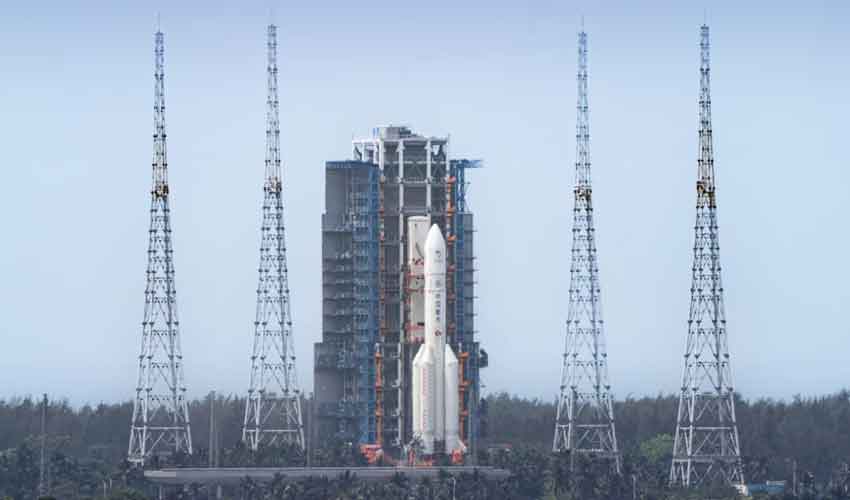By Maham Shakir
Pakistan’s space program, established in 1961, has steadily climbed towards the stars. From its early days launching sounding rockets to the successful deployment of communication and Earth observation satellites, the nation has consistently demonstrated its commitment to scientific exploration.
Pakistan’s space program, established in 1961, has steadily climbed towards the stars. From its early days launching sounding rockets to the successful deployment of communication and Earth observation satellites, the nation has consistently demonstrated its commitment to scientific exploration.
Pakistan’s space program, established in 1961, has steadily climbed towards the stars. From its early days launching sounding rockets to the successful deployment of communication and Earth observation satellites, the nation has consistently demonstrated its commitment to scientific exploration.
This dedication recently culminated in a momentous achievement: Pakistan’s first foray into lunar exploration.
On May 3rd, 2024, the nation successfully launched its lunar satellite, ICUBE-Qamar (ICUBE-Q), aboard China’s Chang’e-6 mission, marking a historic achievement in its scientific endeavours.
This small but sophisticated satellite, weighing approximately 7 kg and equipped with two high-resolution optical cameras, marks a significant milestone, propelling Pakistan into the realm of lunar exploration.
This mission signifies a strategic partnership between Pakistan and China, highlighting the growing trend of international collaboration in space exploration. While not a lunar landing, ICUBE-Q is designed to orbit the moon for an estimated 3 to 6 months.
During this lunar journey, it will gather valuable scientific data, including high-resolution images of the lunar surface, potentially leading to discoveries about its geological features.
Additionally, ICUBE-Q will study the moon’s magnetic field and its variations, contributing to a better understanding of this celestial body.
Pakistan’s lunar mission marks a pivotal moment in its scientific journey. It represents the nation’s growing ambition to push the boundaries of technological advancement and participate actively in the global pursuit of space exploration.
This successful launch paves the way for further scientific endeavours and discoveries in the years to come, solidifying Pakistan’s position as a rising player in the exciting realm of space exploration, with the potential for even more ambitious collaborations on the horizon.
Meanwhile,
The Institute of Space Technology has announced that iCube-Qamar, Pakistan’s maiden lunar satellite mission, has achieved a significant milestone by capturing and transmitting the first-ever image from the lunar orbit. This accomplishment marks a significant milestone in Pakistan’s space program and is a testament to the country’s growing space capabilities.
This groundbreaking accomplishment marks a pivotal moment in Pakistan’s space exploration journey. The satellite, iCube-Qamar, not only entered the lunar orbit but also completed its rotation within a remarkable span of 12 hours, as confirmed by the Institute of Space Technology (IST).
According to IST, iCube-Qamar is equipped to capture images of the lunar orbit from a distance of 200 kilometers above the moon’s surface. The signals transmitted by the satellite will travel an impressive distance of 360,000 to 400,000 kilometers before being received on Earth.
The core team behind iCube-Qamar, comprising Dr. Rehan Mahmood, Dr. Qamarul Islam, and Dr. Khurram Khurshid, celebrated the achievement of receiving the first image sent by the satellite on Friday, May 10, 2024.
This milestone comes just two days after IST confirmed the successful deployment of the satellite into orbit on May 8, 2024, at 1:14 pm Pakistan time. Scientists involved in the project hailed the development as a resounding success.


